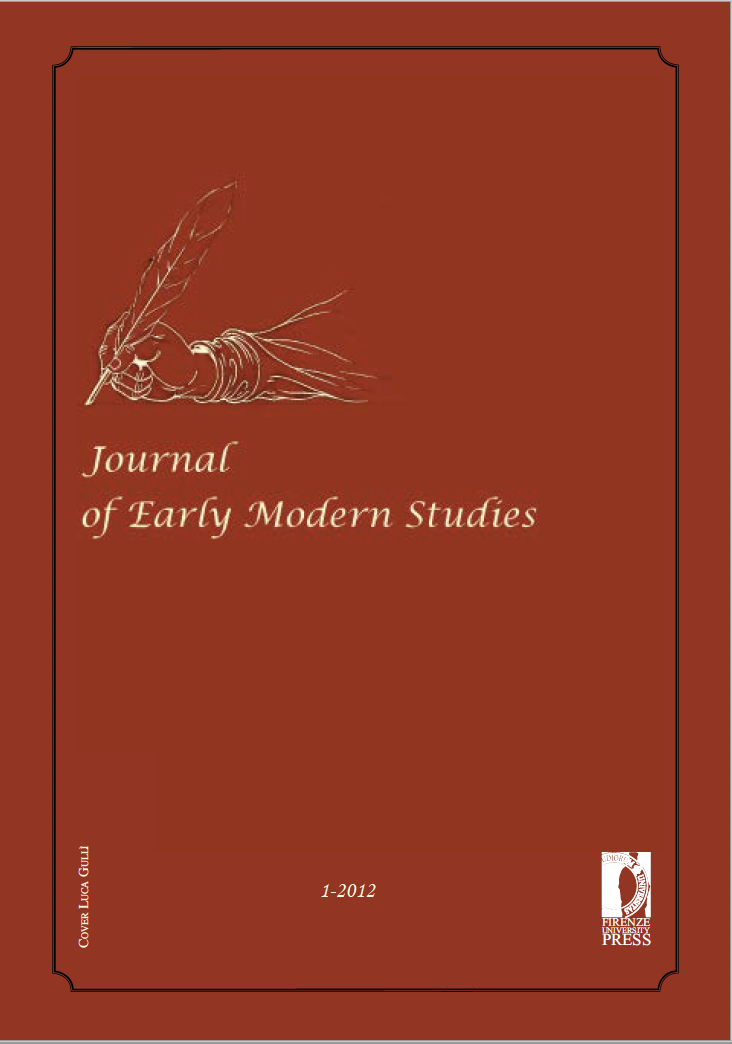Part Two - Case Studies
Dramatic Adaptation, Authorship and Cultural Identity in the Eighteenth Century. The Case of Samuel Foote
Published 2012-03-09
How to Cite
Del Villano, B. (2012). Dramatic Adaptation, Authorship and Cultural Identity in the Eighteenth Century. The Case of Samuel Foote. Journal of Early Modern Studies, 1, 175–191. https://doi.org/10.13128/JEMS-2279-7149-10644


